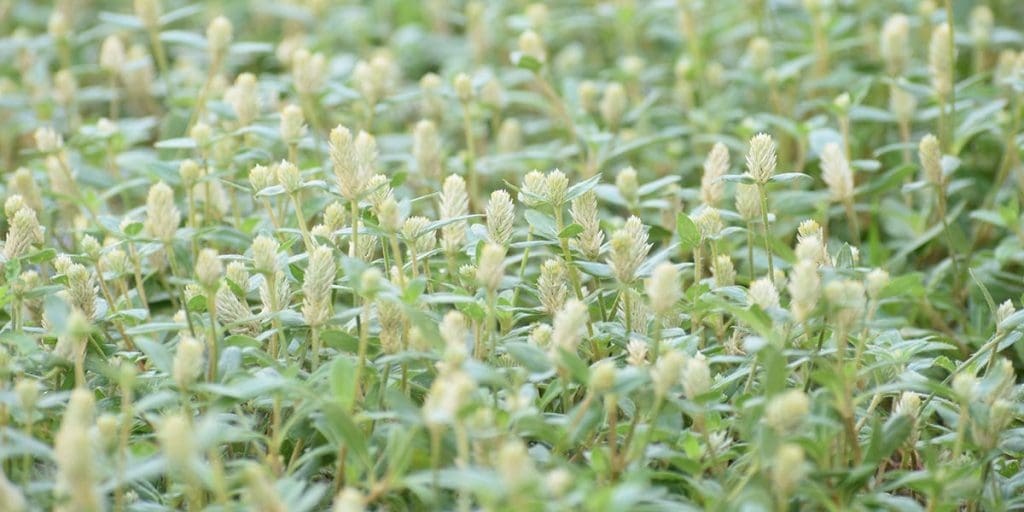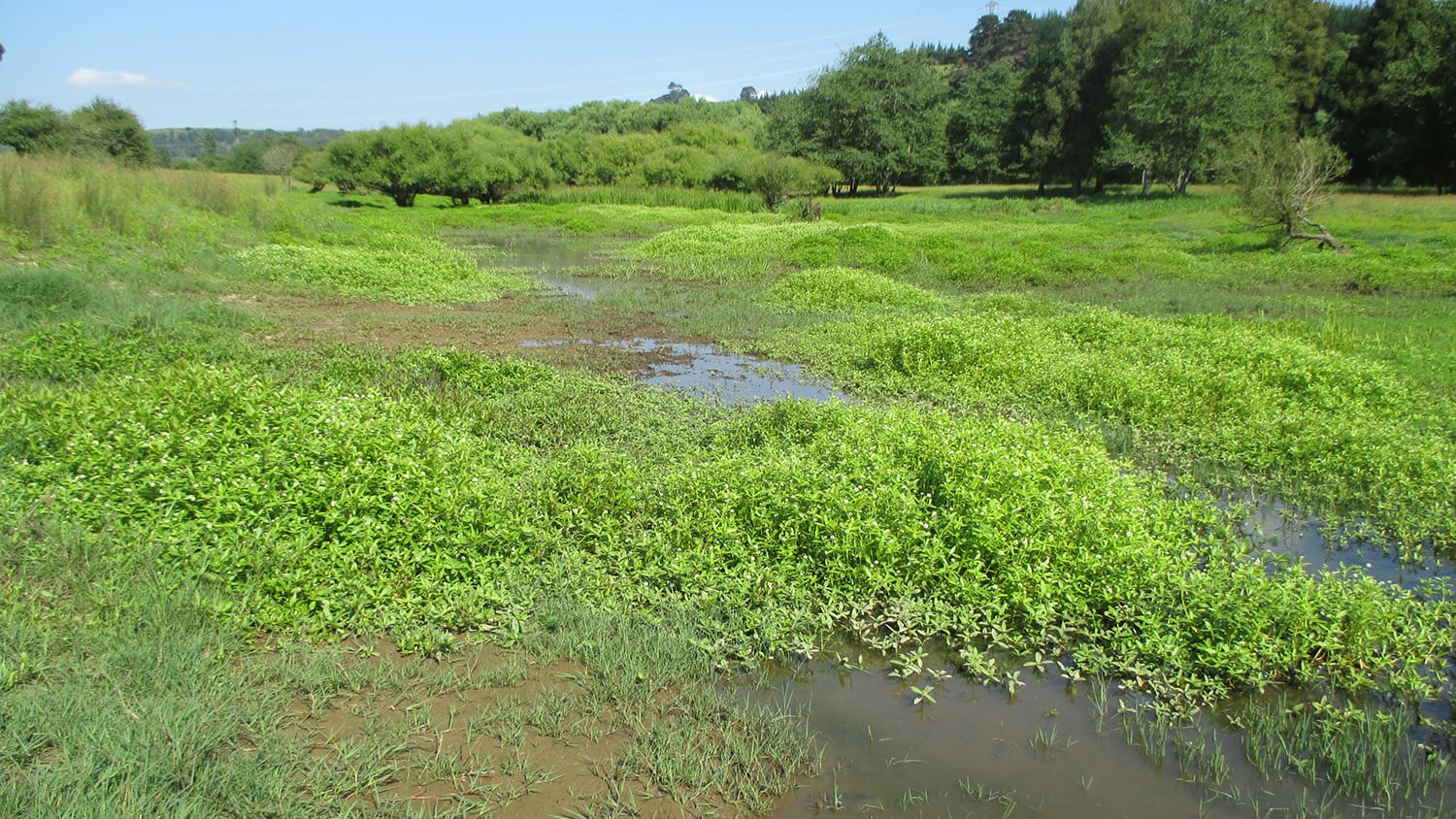Welcome to your ultimate guide on safeguarding your property from the persistent and invasive alligator weed. In this article, you’ll discover practical methods to identify, manage, and prevent the spread of this resilient plant, which poses significant threats to your land’s ecosystem and aesthetic appeal. From understanding the characteristics of alligator weed to implementing effective control strategies, you’ll be equipped with the knowledge to protect your space and ensure it stays free from this unwelcome intruder. Let’s dive into the steps you can take to maintain a healthy, thriving landscape. Have you ever noticed a thick mat of foliage taking over your property and wondered what it is? It might be Alligator Weed, an invasive species you certainly don’t want around. Learning how to protect your property from this uninvited guest is crucial to maintaining the beauty and health of your landscape.
Understanding Alligator Weed
What Is Alligator Weed?
Alligator Weed (Alternanthera philoxeroides) is a perennial plant known for its rapid growth and ability to choke out native vegetation. It’s notorious for spreading quickly through waterways, wetlands, and even dry land areas. Recognizing this weed early on can save you a lot of trouble.
Why Is Alligator Weed a Problem?
Alligator Weed can severely damage ecosystems by outcompeting native plants, clogging water bodies, and even affecting water quality. Its dense mats can block sunlight and oxygen from reaching underwater life, disrupting aquatic ecosystems. Economically, it can impact agriculture, fishing, and even recreational activities.
Identifying Alligator Weed
Physical Characteristics
Getting a good grasp of what Alligator Weed looks like is the first step in safeguarding your property. Here are its key features:
- Leaves: Long, lance-shaped, and opposite each other.
- Stems: Hollow and can root at nodes.
- Flowers: Small and white, clustered like a ball.
Seasonal Appearance
Alligator Weed’s appearance can vary between seasons. During warmer months, it blooms profusely, while in colder months, it may die back but roots remain viable. Here’s a quick seasonal guide:
| Season | Appearance |
|---|---|
| Spring | Lush green growth, beginning of flowering |
| Summer | Full bloom, thick mats on water and land |
| Fall | Gradual die-back, but roots still active |
| Winter | Above-ground parts may die, roots remain alive |
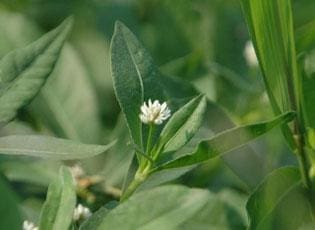
Methods of Controlling Alligator Weed
Mechanical Control
Mechanical control involves physical removal, which can be effective but labor-intensive. Here’s how to go about it:
- Manual Removal: Uproot the plants, ensuring you remove all roots to prevent regrowth.
- Tools: Hand tools like garden forks or mechanical aids like water mowers.
- Frequency: Regular monitoring and removal as soon as new growth is spotted.
Chemical Control
Herbicides can be effective but must be used cautiously to avoid damaging desired vegetation and ecosystems. Here are some recommended chemicals:
| Herbicide | Application Method | Pros | Cons |
|---|---|---|---|
| Glyphosate | Foliar spray | Effective on large areas | Non-selective, may kill other plants |
| Imazapyr | Soil treatment or foliar | Long-lasting effect | Highly toxic, requires care |
| 2,4-D Amine | Foliar spray | Selective, targets broadleaf | Can affect aquatic life |
Biological Control
Biological controls introduce natural enemies to Alligator Weed. While still under research, some promising options include:
- Insects: Alligator Weed Flea Beetle (Agasicles hygrophila) feeds on the foliage.
- Fungi: Pathogens specifically targeting Alligator Weed can limit its growth.
Cultural Control
Creating an environment less conducive to Alligator Weed can help control its spread. Here are some ways to achieve this:
- Promote Native Vegetation: Strong, healthy native plants can outcompete Alligator Weed.
- Water Management: Avoid excessive irrigation that can support the growth of Alligator Weed.
- Buffer Zones: Plant native species along water bodies to act as barriers.
Prevention Strategies
Monitoring Your Property
Regular checks of your property are essential to catching Alligator Weed early. Set a monthly schedule to inspect areas where water tends to collect, as these are hotspots for weed growth.
Quarantine New Plants
When introducing new plants to your property, quarantine them for a period to ensure they’re not carrying Alligator Weed or other invasive species. Wash their roots thoroughly before planting.
Clean Equipment
Garden tools and machinery can unknowingly spread Alligator Weed. Always clean your equipment after working in areas where the weed is known to exist.
Educate Your Community
Being proactive includes helping your neighbors recognize and manage Alligator Weed. Community action can prevent the weed from spreading between properties.
Legislative Measures
Check local regulations concerning invasive species and participate in community or governmental programs aimed at controlling Alligator Weed. Sometimes, local authorities have resources or guidelines that can assist you.
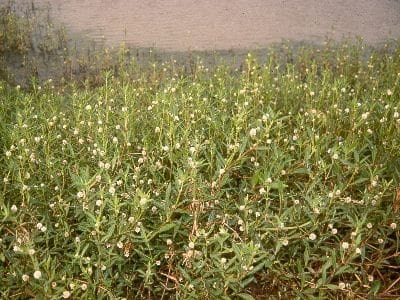
Integrated Weed Management (IWM)
Why Use IWM?
Integrated Weed Management (IWM) is a holistic approach combining multiple control methods for sustainable management. Using diverse strategies minimizes the risk of the weed developing resistance to any single method.
Developing an IWM Plan
Creating an IWM plan involves several steps:
- Assessment: Survey your property to identify the extent of the infestation.
- Goal Setting: Define what successful management looks like for you. Is it complete eradication or simply control and containment?
- Choose Methods: Depending on your situation, select a combination of mechanical, chemical, biological, and cultural control methods.
- Implementation: Put your plan into action, ensuring you follow through with consistent efforts.
- Evaluation: Regularly review and adjust your strategy based on what is working and what isn’t.
Success Stories and Case Studies
Local Community Efforts
In many regions, community groups have successfully managed Alligator Weed through organized efforts. These groups often share tools, resources, and knowledge, making it easier for individual property owners to tackle the issue.
Agricultural Practices
Farmers who have faced large-scale Alligator Weed invasions often use a mix of mechanical removal and selective herbicides to protect their crops. Their methods are typically well-documented, offering valuable insights into effective management strategies.
Government Initiatives
Some governments have launched large-scale initiatives to control Alligator Weed, particularly in sensitive wetland and aquatic zones. Studying these programs can provide ideas and frameworks for smaller-scale property management.
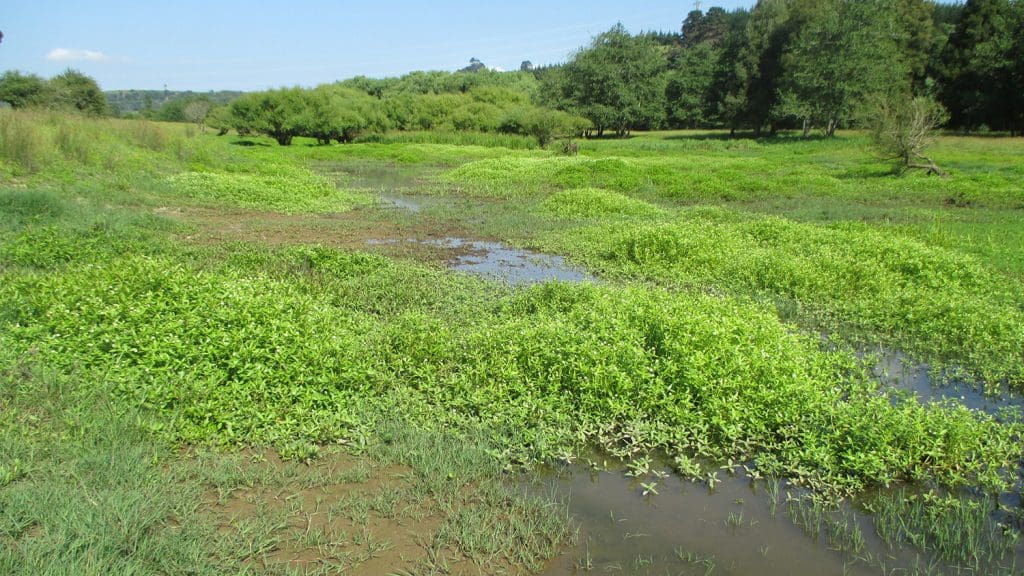
Long-Term Maintenance
Continuous Monitoring
Even after you’ve controlled an Alligator Weed invasion, continuous monitoring is crucial. Regularly inspect your property for any new growth and act swiftly to remove it.
Adapting Methods
Over time, you may need to adapt your methods based on new information or changing environmental conditions. Stay informed about the latest research and best practices in invasive species management.
Engaging with the Community
Joining local environmental groups or forums can keep you engaged with ongoing efforts to control Alligator Weed and other invasive species. These networks provide support and information, helping you stay proactive.
Conclusion
Protecting your property from Alligator Weed involves a combination of identification, control, and prevention techniques. Whether you opt for mechanical, chemical, biological, or cultural methods, the key is consistent and informed action. By staying vigilant, educating your community, and possibly integrating your efforts with local or governmental programs, you can effectively manage and even prevent Alligator Weed invasions. Keep your property beautiful, healthy, and free from this persistent invader.
